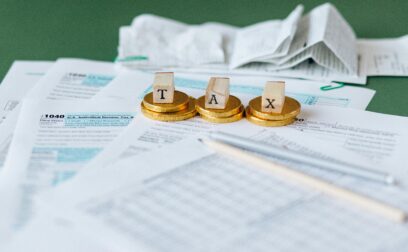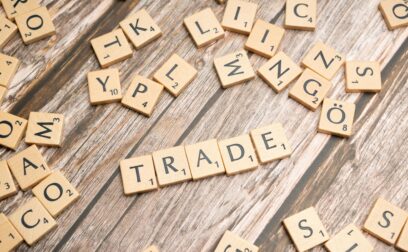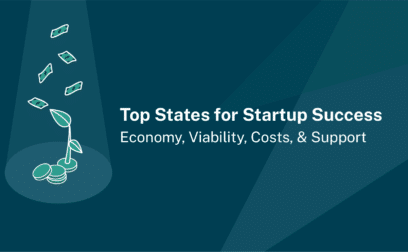TABLE OF CONTENTS
The SBA 7(a) loan is one of the most common and popular SBA loan products offered by the Small Business Administration.
With maximum loan amounts of up to $5 million, reasonable interest rates, and flexibility in what it can be used for, the SBA 7(a) loan can be an excellent way to get financing for your business if you are looking to purchase furniture, refinance existing debt, or manage cash flow.
That said, a 7(a) is not the easiest SBA loan to secure. According to the SBA, business owners must adhere to specific eligibility standards and application processes to qualify. Below, we’ll cover the ins and outs of the SBA 7(a) loan program and what you need to qualify and successfully apply for one.
Page written by Zoe Weisner. Last reviewed on September 21, 2024. Next review due October 1, 2026.

The amount you can borrow for an SBA 7(a) loan depends on which 7(a) loan you have. The most money you can borrow is up to $5 million from the standard 7(a) loan or export working capital loan. You can learn more about the maximum amount you can borrow from each type of 7(a) loan below.
| Type of 7(a) loan | Maximum loan amount |
|---|---|
| Standard 7(a) | $5 million |
| 7(a) small loan | $350,000 |
| SBA express | $500,000 |
| Export express | $500,000 |
| Export working capital | $5 million |
To work out how much your loan might cost you, use our simple SBA 7(a) calculator below to calculate the total interest and total cost of finance for your loan.
Your loan details
This calculator is intended for illustration purposes only and exact payment terms should be agreed with a lender before taking out a loan.
Your results
Monthly payments
$-
Avg. monthly interest
$-
Total interest
$-
Total cost of finance
$-
This calculator is intended for illustration purposes only and exact payment terms should be agreed with a lender before taking out a loan.
There are generally five different kinds of SBA 7(a) loans: standard 7(a) loan, small 7(a) loan, express loan, export express, and export working capital. For most SBA 7(a) loans, you can use the funds for:
The export express loan is for exporters with a more immediate need for funding and who want a faster turnaround time on their applications. With an export express loan, the SBA will respond to your application request within 24 hours.
The export working capital loan is designed for businesses that need working capital to generate more export sales.
If you are a business that operates in an underserved community, you may want to look into the SBA community advantage loan program before it expires in September 2024. The SBA community advantage program is meant to provide loans and assistance to businesses that would be ineligible for a traditional bank loan. To service the SBA community advantage loans, the SBA partners with lenders like certified development companies, microloan programs, and community development financial institutions.
The SBA community advantage loan offers up to $350,000 in funding and is guaranteed by up to 85% from the SBA for loans up to $150,000. SBA loan interest rates range from the prime rate plus 6.5% to the prime rate plus 4.5% depending on the loan size.
The term lengths of an SBA 7(a) loan depend on the purpose of the loan. Generally, repayment terms are between 10 to 25 years, and real estate purchases tend to have longer repayment terms than equipment or working capital loan expenses.
Before you apply for an SBA loan, you need to check the interest rates, which are subject to change. Here are the current variable SBA 7(a) loan interest rates as of 2023.
| Loan Amount | Loan Term Length Less Than 7 Years | Loan Term Length Over 7 Years |
|---|---|---|
| $0 to $25,000 | Prime rate + 4.25% | Prime rate + 4.75% |
| $25,001 to $50,000 | Prime rate + 3.25% | Prime rate + 3.75% |
| $50,001 or more | Prime rate + 2.25% | Prime rate + 2.75% |
Below are the current maximum for fixed rate 7(a) loans.
| Loan Amount | Fixed Rate Maximum |
|---|---|
| $0 to $25,000 | Prime rate + 8% |
| $25,001 to $50,000 | Prime rate + 7% |
| $50,001 to $250,000 | Prime rate + 6% |
| $250,001 or more | Prime rate + 5% |
Two primary fees are associated with an SBA 7(a) loan: a guaranty fee and a service fee. The service fee is charged by the to cover the costs to service a business loan. The guaranty fee is what the SBA charges in order to guarantee an SBA 7(a) loan. The majority of SBA 7(a) loans are guaranteed by up to 85% from the SBA for loans under $150,000. For loans over that amount, the SBA will guarantee up to 75% of the loan amount.
Guaranty fees are usually waived if your loan amount is under $350,000. However, you will be charged the following fee rates if your loan amount is more than $350,000.
| Loan Amount | Upfront Guaranty Fee | Annual Service Fee |
|---|---|---|
| $350,001 to $700,000 | 2.77% of guaranteed portion of the loan | 0.49% of the guaranteed portion of the unpaid balance |
| $700,001 to $1,000,000 | 3.27% of guaranteed portion of the loan | 0.49% of the guaranteed portion of the unpaid balance |
| $1,000,001 or more | 3.55% of guaranteed portion of the loan | 0.55% of the guaranteed portion of the unpaid balance |
To work out the monthly repayments of your loan, use our SBA loan calculator here.
To qualify for an SBA 7(a) loan, your small business must be a for-profit business operating in the U.S and:
Additionally, your business must meet specific parameters set by the SBA related to size and a demonstration that your business needs the financing.
Two of the most important factors needed to apply for an SBA 7(a) loan are a solid business plan and the lender you apply to. Deciding the right lender is also important because they are one of the biggest influences on the interest rate you receive on your loan.
Below are three steps you can take to apply for an SBA 7(a) loan and increase your chances of securing one.
There are a few ways to find an SBA 7(a) lender. The first option is to use the SBA’s free lender match tool; however, not all SBA lenders utilize lender match, which means you may miss out on the perfect lender for your business.
The second option is to reach out to your local SBA economic development consultant. These economic development consultants can work with you to find a lender who issues SBA loans that are right for your business. You can find economic development consultants using the SBA’s local assistance tool.
Your SBA 7(a) application is the most important factor in securing a loan from the SBA. According to the SBA, your application must contain:
If you are planning to buy an existing business, you’ll need to make sure you have:
The SBA approval process varies depending on the size and type of business loan you apply for and the amount of information in your application. If you applied with an SBA preferred lender, you will likely have a faster turnaround time because a second approval process is not needed.
Generally, the rule of thumb is that it takes up to 90 days to process your SBA loan application. Larger business loans can take the longest to process because the SBA will likely spend more time closely evaluating your application.
Besides the SBA 7(a) loan, several other alternative loan options exist. You can also find different types of business loans from alternative lenders. Alternative lenders usually have a completely online application process and offer loan products such as business lines of credit, term loans, equipment financing, and invoice factoring. Alternative lenders are usually easier to qualify for than traditional business loans or SBA loans because they can have higher interest rates.
By registering with Swoop, you can learn more about whether an SBA 7(a) loan is right for your business by answering a few questions. With Swoop’s digital platform and lending specialists, you can compare thousands of business loans and assess the financial requirements needed to access to the right SBA funding.
Zoe is an experienced content marketer and freelance writer. For the past five years, she has written for several high-profile fintech startups such as BlueVine, Fundera, and Nerdwallet to help small business owners navigate through the world of small business financing. Today, Zoe writes about small business finance, business operations, and personal finance.
Swoop promise
At Swoop we want to make it easy for SMEs to understand the sometimes overwhelming world of business finance and insurance. Our goal is simple – to distill complex topics, unravel jargon, offer transparent and impartial information, and empower businesses to make smart financial decisions with confidence.
Find out more about Swoop’s editorial principles by reading our editorial policy.
Related pages
Daire made it happen! There is no doubt that Swoop sped up the process and found lenders that worked to our time scale rather than the other way round
Hocque Figureoa
Joint owner, F45 Virginia
Swoop was actually very helpful in helping us get our initial fundraising in place. Swoop was able to connect us with investors, with grant financing options and debt financing options.
Viler Lika
Founder, SingleKey
Pedja was amazing. Super supportive, understanding of our needs and wasn't pushy at all. We've been going back and forth with Swoop for over a year inquiring about different financing options and they were patient until we were ready!
Chris Skeates
F45 Multi-studio owner
Join the 95,000+ businesses just like yours getting the Swoop newsletter.
Free. No spam. Opt out whenever you like.
Kingfisher Way, Silverlink Business Park, Newcastle upon Tyne, NE28 9NX, UK
View in Google Maps35 Bull Street, Lewis Building, Birmingham B4 6AF, UK
View in Google MapsAberystwyth Innovation and Enterprise Campus
Gogerddan Campus
Aberystwyth University
Ceredigion
SY23 3EE
Dogpatch Labs, The CHQ Building, Custom House Quay, Dublin, Ireland
View in Google MapsSuite 801, Level 8, 84 Pitt Street, Sydney, NSW 2000, Australia
View in Google Maps43 W 23rd St, New York, NY 10010, United States
View in Google Maps21 Dreyer Street, Cape Town, South Africa, 7708
View in Google MapsClever finance tips and the latest news
Delivered to your inbox monthly
Join the 95,000+ businesses just like yours getting the Swoop newsletter. Free. No spam. Opt out whenever you like.




